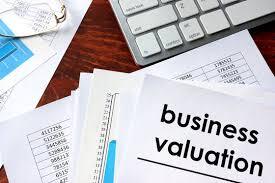

Business valuation is essential to strategic planning, investment choices, and financial reporting. It assesses a company’s economic worth, useful for mergers and acquisitions, fundraising, taxes, and litigation. This blog digs into the complexities of company valuation, concentrating on essential topics such as management analysis, capital structure, future earnings projections, and asset market value. It also looks at the function of rules, certificates, and licenses in the valuation process.


Business Valuation
Business valuation is the process of assessing a company’s fair market worth, playing a significant part in several financial transactions such as mergers, acquisitions, investments, and estate planning. By learning different business valuation processes, you can make educated judgments and correctly determine a company’s value. Whether you are an investor, company owner, or financial planner, understanding how to assess a firm’s worth is vital for making strategic and financially prudent decisions.
Business value: what is it?
Business valuation is the procedure of ascertaining the present value of a company entity or its assets. Investment analysis, capital budgeting, merger and acquisition activity, financial reporting, and tax planning are just a few of the many decision-making processes its valuation supports.
Strategies for Business Valuation
The value of a firm is determined using numerous techniques, each having benefits and drawbacks. The most often used methods are the asset-based, income-based, and market approaches.
Method of Approach in Markets
The market method compares the subject firm with like companies in the market. This approach depends on market multiples generated from like transactions or publicly listed businesses.
Income Methodology
The income method treats a company according to its capacity to create going forward income. The Discounted Cash Flow (DCF) analysis is the most often used method in this approach as it projects the present value of anticipated future cash flows.
asset-based approach
The asset-based method computes a company’s worth by adding all of its assets and then deducting its liabilities. Businesses with substantial physical assets especially benefit from this strategy.
Importance of Management in Valuation
A company’s performance and value are heavily influenced by its management team. Investors and analysts often evaluate the management team’s talents, expertise, and track record when evaluating the company’s prospects.
Key Management Attributes:


Business valuation services play a key part in assessing the genuine value of a firm. Whether you’re going to sell your firm, attract investors, or conduct mergers and acquisitions, having a correct value is vital. Here’s a short look at the relevance of company valuation services:
Business valuation services comprise a detailed review of a company’s financial performance, assets, liabilities, and market position to assess its fair market worth. These services examine different criteria including sales, profitability, industry trends, and possible future profits to arrive at an appropriate value.
Business valuation is vital for establishing the value of a firm, whether it’s for selling, mergers, or strategic planning. There are various ways available to analyze a corporation, each delivering distinct insights based on financial performance, assets, or future development prospects. Here’s a short glance at several typical company valuation methods:
Income-Based Approach
This strategy focuses on a company’s ability to create future profits. The two primary kinds are:
Discounted Cash Flow (DCF): Projects the business’s future cash flows and estimates their current value by applying a discount rate. It’s suitable for firms with predictable cash flow.
Capitalization of Earnings: Uses previous earnings to anticipate future profits. While speedier, it may be less accurate for organizations with variable profits.
Earnings Multiplier Method
The earnings multiplier approach examines a firm by multiplying its current profits by an industry-specific multiplier. This strategy evaluates both present profitability and projected future profits, making it appropriate for organizations focused on growth.
Future profits are an important predictor of a company’s worth since they reflect its potential for growth and profitability.
Methods to Forecast Future Earnings
Factors Affecting Future Earnings
Value of Asset Appreciations
Estimating the whole value of a firm and evaluating its financial situation depend on precisely valuing its assets.
Techniques of Valuing Resources


Significance of Policies for Corporate Valuation
Risk management and operational efficiency depend much on company rules including governance, compliance, and operational policies.
Certificate and Licence Function
Ensuring that the business conforms to industry norms and standards depends on certificates and licenses, which will affect its worth and reputation.
Examining the company’s compliance with laws and capacity to control risks helps one evaluate the impact of policies, certificates, and licenses compliance and risk management.
For More Info: cbic.gov.in
A multifarious process, business valuation calls for a thorough investigation of several elements, including management quality, capital structure, future earnings prospects, asset value, and corporate policies. Knowing these components helps stakeholders decide on the value and future possibilities of the business. In addition to improving strategic decision-making, a comprehensive and accurate business valuation raises the company’s appeal to investors.
G-4 Sector-3
Noida 201301
Uttar Pradesh, India
View On Maps
“Unlocking Potential,
Driving Growth:
Your Partner in Success”